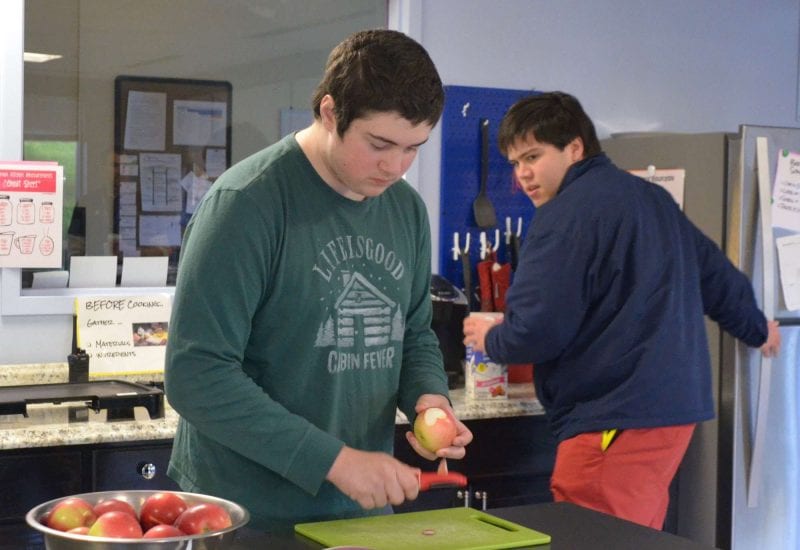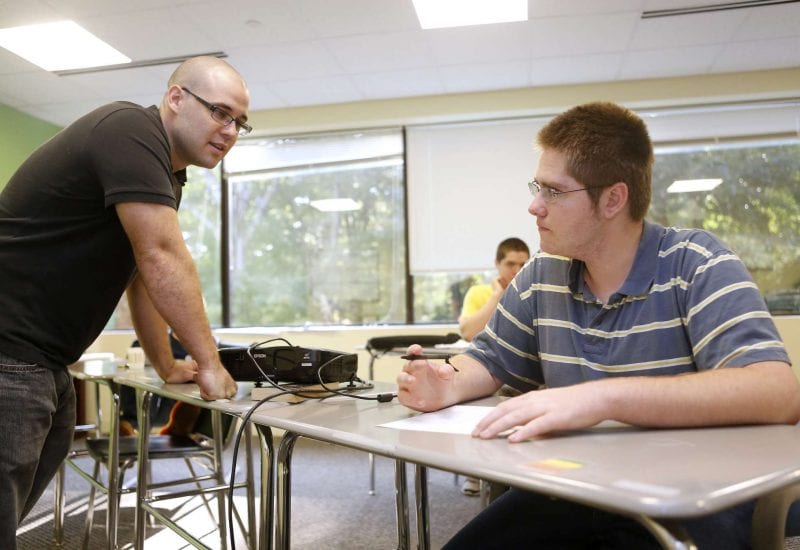Our Mission
Milestones’ post-high school program supports students as they discover and develop their individual strengths, become effective self-advocates, and acquire a broader repertoire of social competencies and independent living skills, all leading to meaningful adult life.
Preparing Students for Adulthood
Milestones offers individualized multi-year post-high school programming designed to prepare students to transition from high school to post-secondary education and/or employment. Students will discover and develop their individual strengths, become effective self-advocates, acquire a broader repertoire of social competencies and independent living skills, and become active members of the community. With a focus on self-determination, self-advocacy, and increased independence, students receive direct instruction in six core competencies: Executive Functioning, Independent Living, Recreation & Leisure, Social, Work-Based Learning, and Preparation for Next Steps.
Programming takes place in a variety of settings. Our in-house mock apartment provides a natural environment to learn and practice skills. Dual enrollment at Mass Bay Community College provides students with the opportunity to experience higher education while still receiving individualized support. Work-based learning opportunities provide authentic experiences to develop employment skills based on career interests and strengths. Community-based instruction occurs in natural community settings and promotes generalization of functional daily living skills. Each of these real-world experiences provides students with the skills needed to create their own meaningful adult lives.

Community and Independent Living Skills
Community Based Instruction is an educational method that teaches functional skills in a student’s natural environment. Our comprehensive curriculum teaches our students how to execute community living skills from crossing streets safely to making reservations at a restaurant. Teaching occurs in both the community and the classroom. Classroom instruction focuses on teaching students how to structure, organize, and access community resources using a range of tools including alarms, reminders, bulleted lists, visual cues, and assistive technology applications with a focus on increased independence.

Emotional Development
In addition to the difficulties our students experience with executive functioning and independent life skills, many of our students struggle with emotional issues such as low self-esteem and anxiety. Many of our students have experienced setbacks that have negatively impacted their confidence and sense of agency. Program staff is trained in providing emotional support and how to nurture problem-solving and self-advocacy skills. The professional team includes a licensed psychologist who is available for consultation and individual support.

College, Career and Internships
Creating and maintaining strong community partnerships are an essential part of Milestones’ transition planning. Our college dual enrollment and work-based learning programming provide students with authentic opportunities to develop future education, employment, and transition skills based on career interests and strengths.
Dual enrollment at Mass Bay Community College provides students with the opportunity to experience higher-education learning while still receiving therapeutic supports. Students enrolled at Mass Bay will earn college credit that can be transferred to many four-year colleges and universities. Individualized coaching is provided with fading support as appropriate in order to maximize independence.
Employment readiness opportunities can take the form of community service projects, volunteering, work trials, and/or internships. In addition, our robust summer program for incoming juniors and seniors includes a variety of targeted workshops to assist in navigating important aspects of the work environment while practicing critical on-the-job skills. Students participate in a four-week part-time field placement in an area of interest, totaling approximately 40 hours, with an ongoing emphasis on self-reflection, self-advocacy, and goal setting.
Learn More
Guardianship
Guardianship is a legal process for adults who have a clinically diagnosed developmental disability who are unable to make or communicate effective decisions about their everyday self-care, health, and safety. The court will appoint a guardian to make some or all of the personal decisions on an adult’s behalf.
Supported decision-making is a legal alternative to guardianship, allowing individuals with disabilities to make choices about their lives with support from a team of people. Supported decision-making promotes self-determination and autonomy while fostering independence.



